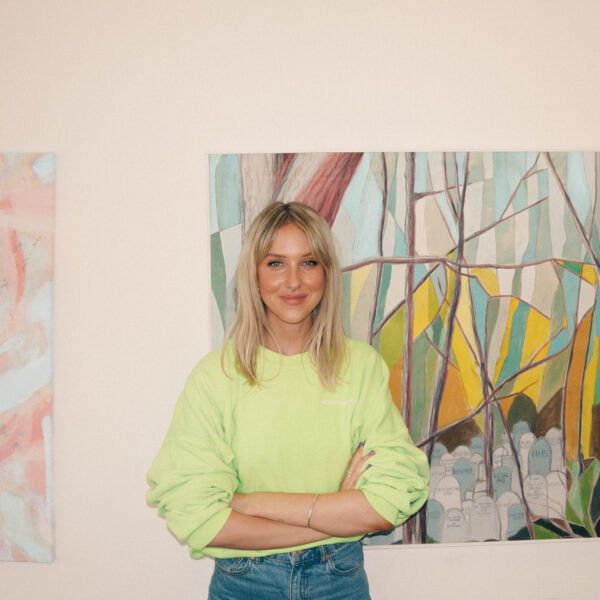
Natasha Collie
Senior Brand Marketing Manager at Penguin Random House UK
At the start of the year, Ladybird Books approached Sonder & Tell with a dream brief. In 2021, a year that’s been particularly challenging for...
In conversation with
Founder of Beam Me Up Softboi

Ahead of the big V-day, we had the chance to speak to Iona David, journalist, influencer, and creator of the iconic Instagram account @beam_me_up_softboi, which showcases “softbois” in action. Thanks to Iona, the term has taken on a definition of its own and now, there’s a space to double-tap for every hilarious, horrifying and heartbreaking DM slide. But what exactly is a softboi? Where do they come from? How can you identify them? We dive deep into the analysis of the softboi’s digital vernacular, a silly billy tone of voice, and how dating platforms of the digital age can stay in the real world.
At its core, the softboi is your classic man who dresses edgy, listens to alternative and ‘niche’ music (probably on vinyl), seems sweet and ‘in tune with his emotions’ but may still treat you like shit despite these facts.
On my Instagram account, users screenshot and submit softbois in action – on dating apps, for example – and I post the ones I think are the funniest, e.g.
The nature of this account means that the term “softboi” has taken on a definition of its own. It’s now inextricably tied to bad romantic behaviour, even though in my head, I still see the term as something more all-encompassing. My definition of a softboi is anyone, of any gender, who’s leaning towards anti-establishment in the way they present themselves, in their interests and in their beliefs. This includes both people who are screenshotted saying stupid things in a romantic context, and people who aren’t.
I specialise in analysing the softboi’s digital vernacular – I can’t really speak for how they sound IRL (except that about 80% of the time, softbois are from the Home Counties and have the accent to match).
When they’re communicating online, softbois radiate a carelessness that can be viewed as sexy or irritating. This is perhaps best demonstrated in the overwhelming majority of softbois turning off the auto-capitalise feature on their phone. This is an anti-establishment move, as well as one designed to portray themselves as carefree.
There’s a move away from fully typed words, back towards the txt-speak that was rife in the mid-to-late noughties. Even though softbois typically have constant access to a full QWERTY keyboard, they are becoming inclined to say “c u l8r”, as opposed to the standard “See you later”.
We’re also seeing abbreviation that’s characteristic of Gen Zs everywhere – a softboi is more likely, for example, to abbreviate the word “festival” to “Festy V”. And yes, you’re right, that isn’t technically an abbreviation, but that in itself illustrates perhaps the most important factor in how the softboi speaks: silliness. In what may be a nod to the “random :P” and “quirky” crazes of the early 2010s (the time when most of these softbois were coming of age), there’s now a sprinkling of frivolity in the way a softboi communicates. Like Nigella Lawson and her Mîcrowávé, at heart, the softboi is just a silly billy who wants to have fun when he speaks.
“Languid, lilting internet speak” meets “desperate need to prove their consumption and understanding of F. Scott Fitzgerald books”.
“You’ve got to find the balance between being like “Hey, kids, we’re just like you” and “We are obviously trying to sell you something".”
Stay grounded in reality. Whether it’s through using real people and their stories for your campaigns, or maybe by initiating more IRL events (I love the idea of throwing it back to speed-dating), people are starting to feel seriously disillusioned by the clinical nature of online dating. It’s a really tricky line to walk, but I have a lot of respect for the brands who are visibly talking to and learning from the communities they’re trying to infiltrate.
My initial reaction is to say younger brands – the ones who perhaps started out online, and haven’t had to undergo the translation from older advertising formats to online ones, because they really are so different. I like peachy den, Motel, Estrid (my targeted ads are mostly beauty and fashion related, as you can tell). On a larger scale I think Aldi’s got the right idea too. A lot of young people are so disillusioned that brands as a concept piss them off, which means it’s a nearly impossible line to walk. You’ve got to find the balance between being like “Hey, kids, we’re just like you” and “We are obviously trying to sell you something”.
I’m sensing a move away from modernity and a return to tradition – I’d love to see a full return to Mad Men-style marketing. How we communicate online changes at such a rapid pace, too, so brands have to have their finger on the pulse at a level that’s not been seen before.

I’d love to move away from softbois and “stretch my legs” linguistically – I love softbois, but I have other things I’d rather write about. I love supermarkets – my dream job would probably just be travelling the world reviewing different supermarkets.
Mangal II, the cheapest thing on the menu, Arc’teryx.

Senior Brand Marketing Manager at Penguin Random House UK
At the start of the year, Ladybird Books approached Sonder & Tell with a dream brief. In 2021, a year that’s been particularly challenging for...

Founder Of Simple Politics
Talking about serious issues doesn’t mean defaulting into a serious tone of voice, or using complicated language. If anything, accessibility, clarity and a touch of...

Brand & Community Manager at Homethings
Creating a tone of voice from scratch can be challenging. But a blank slate to work from also mean there’s room for something a bit...

Founder of Word Tonic

Strategy Director at Sonder & Tell